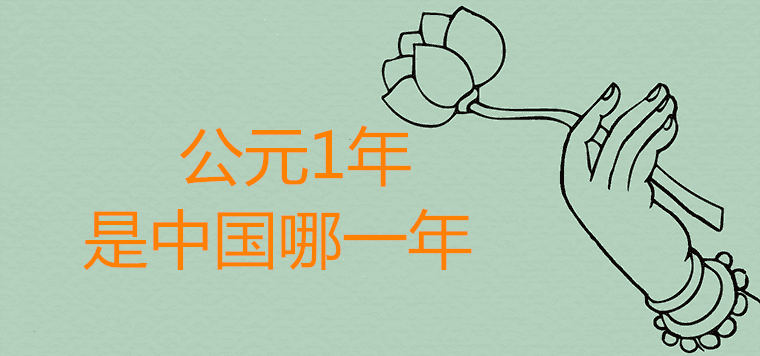What year is 1 AD in China? What historical events happened?
AD 1 is also known as the first year of AD, and its corresponding Chinese lunar calendar is the year of Xinyou, which is the first year of Yuanshi.This year is not only the year when the Western society officially implemented the new calendar, but also the year when a new dynasty in China was born.Therefore, various historical and historical events that occurred in AD 1 can be described as very commemorative.

On September 27, 1949, passed by the first plenary session of the Chinese People"s Political Consultative Conference, the new China replaced the calendar method with a unified Gregorian calendar, and All previous years were delimited by the first year of Yuanshi, before it was recorded as BC, and after it as AD, which not only achieved the integration with the world, but also made the Chinese calendar more uniform.
What year is AD 1 in China?
According to historical records, the corresponding year of AD 1 in the new era is the first year of Yuanshi, so from history textbooks we have It is not difficult to find that the years before this are collectively called BC, and the years after this are called AD.For example, the standard way of writing 2020 is 2020 AD, so we must not use these two ways of chronology.Confused, because the difference of one word is thousands of years.
Detailed explanation of major events in Chinese history in AD 1
1.Buddhism was introduced into China.
2.In the Western Han Dynasty, according to "Zhou Li", Xihe officials were set up, and the official rank was two thousand stone.
3.Wang Mang instructed Yizhou to offer black and white pheasants in the name of "Yueshang"s" as auspicious, and was called "An Han Gong".
4.Wang Zhengjun ordered all the convicted female apprentices in the world to be released and returned home, paying 300 yuan per month to hire people to serve.
5.Wang Mang sent a letter to Kong Guang as the Taishi, Wang Shun as the Taibao, Zhenfeng was named the Marquis of Guangyang, the official was named Shaofu, Zhen Han was named the Marquis of Chengyang, and all four were four assistants..
6.Liu Kaiming of the Western Han Dynasty was the king of Dongping; Liu Chengcheng was the king of Zhongshan; thirty-six people, including Liu Xin, the great-grandson of Emperor Xuan of the Han Dynasty, were all marquis; Guan Nei Hou.
7.Wang Mang ordered the titles of princes and princes to be inherited by close relatives, and gave pensions of one third of the original salary of retired officials.
8.On June 20th, Gongsun Xiangru, a descendant of Zhou Gongdan, was named the Marquis of Baolu, and the descendants of Confucius were named the Marquis of Baocheng.
9.Under the operation of Wang Mang, the Empress Dowager Wang Zhengjun issued an edict saying that in addition to the entrustment of the title to Wang Mang, Wang Mang"s power is comparable to that of the emperor.
10.Amnesty and release of all prisoners.

微信扫码关注
更新实时通知
